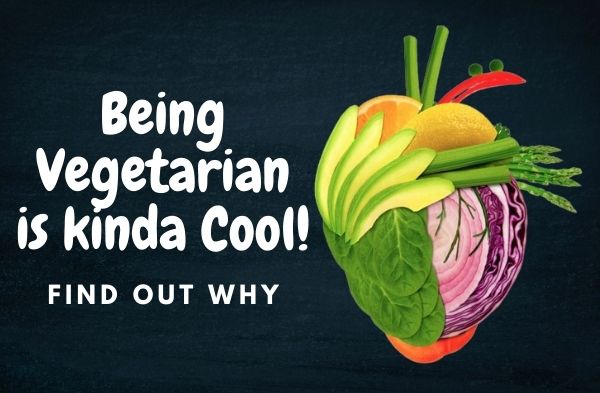The Benefits of Being Vegetarian
Welcome to our comprehensive guide on the benefits of being vegetarian. In this article, we will explore the numerous advantages of adopting a vegetarian lifestyle. By understanding the positive impact it has on our health, the environment, and animal welfare, you will gain valuable insights into why vegetarianism is a choice worth considering.
Improved Health
One of the key benefits of being vegetarian is the positive impact it can have on your overall health. Scientific studies have consistently shown that a well-planned vegetarian diet can provide all the necessary nutrients, while reducing the risk of chronic diseases such as heart disease, type 2 diabetes, and certain types of cancer.
Vegetarian diets are typically rich in fiber, vitamins, minerals, and antioxidants, which help support a healthy immune system and promote proper digestion. By consuming a variety of plant-based foods, you can ensure you are getting a wide range of essential nutrients that contribute to overall well-being.
Environmental Sustainability
Choosing a vegetarian lifestyle also has a significant positive impact on the environment. Animal agriculture is a major contributor to greenhouse gas emissions, deforestation, and water pollution. By reducing our consumption of animal products, we can help mitigate climate change, preserve natural resources, and protect biodiversity.
Furthermore, the intensive farming practices associated with meat production often involve the use of antibiotics and hormones, which can have detrimental effects on the environment and human health. By opting for a vegetarian diet, you can contribute to a more sustainable and eco-friendly future.
Ethical Considerations
Animal welfare is another important aspect to consider when discussing the benefits of being vegetarian. Many people choose to adopt a vegetarian lifestyle out of compassion for animals. By avoiding meat, you are actively reducing the demand for factory farming and the associated cruelty towards animals.
Factory farming often involves cramped and unsanitary conditions, routine use of antibiotics, and painful procedures such as debeaking and tail docking. By embracing a vegetarian diet, you are making a conscious choice to promote a more humane treatment of animals and support their well-being.
Economic Advantages
Being vegetarian can also offer economic benefits. Plant-based foods tend to be more affordable compared to meat and animal products. By incorporating a variety of fruits, vegetables, legumes, and whole grains into your diet, you can save money while still enjoying a nutritious and satisfying meal.
Additionally, vegetarian diets often require less energy, water, and land resources compared to meat-based diets. This can lead to cost savings in terms of production, transportation, and environmental remediation. By choosing vegetarian options, you are not only benefiting your wallet but also contributing to a more sustainable economy.

In conclusion, the benefits of being vegetarian are vast and encompass various aspects of our lives. From improved health and environmental sustainability to ethical considerations and economic advantages, adopting a vegetarian lifestyle can have a positive impact on both individuals and the world as a whole.
By choosing to prioritize plant-based foods and reducing our consumption of animal products, we can contribute to a healthier, more compassionate, and sustainable future. So why not take the first step towards a vegetarian lifestyle today? Your health, the environment, and animals will thank you!
Frequently Asked Questions
1. What are the health benefits of being vegetarian?
Being vegetarian can lower the risk of heart disease, high blood pressure, obesity, and certain types of cancer.
2. Can being vegetarian help with weight loss?
Yes, a vegetarian diet tends to be lower in calories and saturated fats, making it easier to maintain a healthy weight.
3. Are vegetarians at risk of nutrient deficiencies?
With proper planning, vegetarians can easily meet their nutritional needs. Plant-based foods offer a wide range of nutrients.
4. Does being vegetarian reduce the risk of diabetes?
Studies have shown that a vegetarian diet can lower the risk of type 2 diabetes due to its emphasis on whole grains, fruits, and vegetables.
5. Can being vegetarian improve digestion?
Vegetarian diets are typically high in fiber, which aids digestion and promotes regular bowel movements.
6. Is it true that being vegetarian can improve skin health?
A well-balanced vegetarian diet that includes plenty of fruits and vegetables can contribute to healthier skin.
7. Can being vegetarian help the environment?
Yes, the production of plant-based foods generally requires fewer resources and produces fewer greenhouse gas emissions compared to animal agriculture.
8. What are the ethical benefits of being vegetarian?
Many people choose vegetarianism to avoid supporting the cruelty and exploitation of animals raised for food.
9. Can being vegetarian save money?
Vegetarian diets can be cost-effective, as plant-based protein sources like legumes, tofu, and grains are often more affordable than meat.
10. How can being vegetarian contribute to a sustainable future?
By reducing the demand for meat, being vegetarian can help conserve water, reduce deforestation, and promote biodiversity.




